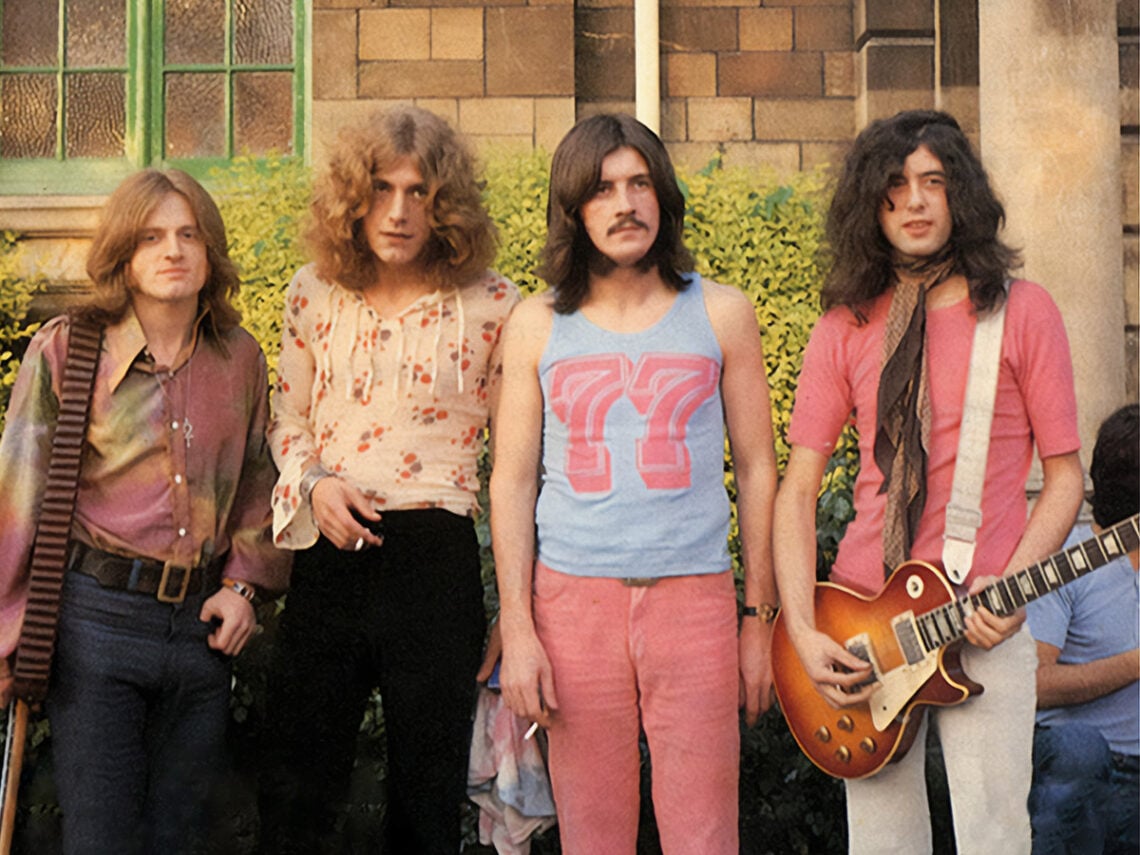
While no single song can definitively be declared the sole harbinger of Led Zeppelin’s end, the epic and arguably their most sonically ambitious track, “Kashmir,” from their 1975 masterpiece “Physical Graffiti,” carries a weight of historical irony when viewed through the lens of the band’s fracturing in the years that followed. More than just a musical triumph, “Kashmir” inadvertently encapsulates the very forces – both internal and external – that would ultimately contribute to the legendary band’s demise.
At its core, “Kashmir” is a testament to Led Zeppelin’s unparalleled musical prowess and their willingness to push boundaries. Its hypnotic, cyclical guitar riff, John Bonham’s thunderous yet intricate drumming, John Paul Jones’s majestic orchestral arrangements, and Robert Plant’s mystical, evocative lyrics create a sonic tapestry unlike anything else in their catalog. It was a song that showcased their maturity, their confidence, and their ability to seamlessly blend hard rock with world music influences.
However, the very ambition and complexity that made “Kashmir” a masterpiece also hinted at the increasing creative tensions within the band. The meticulous layering of instruments and the sheer scale of the production were a far cry from the blues-infused rawness of their early work. While this evolution was a hallmark of their artistic growth, it also reflected the growing individual creative desires that would eventually pull the members in different directions.
Furthermore, the lyrical themes of “Kashmir,” while open to interpretation, evoke a sense of a long and arduous journey, a search for something profound amidst vast and sometimes desolate landscapes. In retrospect, this can be seen as a metaphorical foreshadowing of the band’s own trajectory. They had reached the summit of rock and roll, traversing immense musical and cultural landscapes, but the journey had taken its toll.
The years following “Physical Graffiti” were marked by increasing turbulence for Led Zeppelin. Robert Plant suffered a devastating personal loss with the death of his son Karac in 1977, a tragedy that profoundly impacted his outlook and his commitment to the band’s relentless touring schedule. John Bonham’s struggles with substance abuse became more pronounced, casting a dark shadow over their later years.
While “Kashmir” itself wasn’t directly linked to these personal tragedies, its grandeur and the sheer effort involved in its creation and performance arguably represented the peak of Led Zeppelin’s collective energy. The subsequent albums, while still containing moments of brilliance, lacked the same cohesive and groundbreaking spirit that defined their mid-70s output.
The ultimate tragedy, of course, was the death of John Bonham in 1980, which unequivocally brought Led Zeppelin to an end. In this context, “Kashmir,” released five years prior, stands as a powerful and almost prophetic marker. It captured the band at their most musically ambitious and arguably their most creatively unified, just as the forces that would ultimately tear them apart were beginning to gather strength.
Therefore, while not a literal “song that signalled the end,” “Kashmir” can be viewed as a poignant and ironic touchstone in the Led Zeppelin narrative. Its epic scale reflected their artistic zenith, while its underlying themes and the complex creative process behind it unknowingly foreshadowed the personal and internal struggles that would eventually lead to the premature end of one of rock’s greatest bands. It remains a timeless masterpiece, forever intertwined with the bittersweet story of Led Zeppelin’s rise, reign, and ultimate, heartbreaking conclusion.
